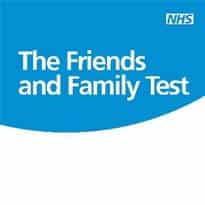All GPs, community and mental health services must be collecting Friends and Family Test data from January 2015.
In a report presented to NHS England’s board last Friday, director of patients and information Tim Kelsey gives an update on use of the test, which asks every patient whether they would recommend an NHS service to their friends and family.
The first round of the FFT was implemented on hospital wards and A&E departments from April with initial data published at the end of July. More than 400,000 patients completed the survey in that time.
The board report says the response rate to the Friends and Family Test and the way in which the patient feedback has already led to "significant and lasting change", proves that it is worth extending to all NHS services.
The NHS will start collecting FFT data for maternity services from next month.
“For GP practices, community health services and mental health services FFT, NHS England will expect all service providers to be collecting FFT from January 2015 at the latest,” it says.
For other areas of acute care – such as outpatient and day case services – and other areas of primary care – such as pharmacists, dentists and opticians – the latest start date will be April 2015.
“This will mean that whatever path a patient takes through the NHS to support them with their condition or illness, they will be able to provide feedback to help improve local services,” the report says.
It adds that NHS England is now responsible for a number of surveys and other insight functions that were originally commissioned by the Department of Health.
These include; the GP patient survey; bereaved voices; the cancer patient experience survey; the staff survey; and patient reported outcome measures.
The board is in the early stages of evaluating this programme of work to “ensure that the data meets the needs of NHS England and its partners as effectively as possible”.
“There are a number of new streams of work already underway including the Friends and Family Test for patients and staff. We will look to understand how these new programmes of work fit in with what is already taking place, as well as looking at what further work might be needed,” it says.

